The Catholic mother of a “gay” son, after finding out about his homosexuality, said: “I felt a great sigh of relief since I had imagined many worse things like: drugs, terrible sickness, trouble with police, getting someone pregnant etc;” and another Catholic mother of a “gay” son commented: “When my son told my husband and me that he was gay about eight years ago, we were not surprised. We had suspected as much for several years, and were in some ways relieved;” and yet another Catholic mom writes about her “gay” son: “I knew [child’s name] was gay when he was in kindergarten…When he finally told all of us, it was a huge relief and as if a weight had been lifted. That may sound wrong to some of you who are Catholic. That we ‘celebrated’ his coming out as gay??? But, we did.”
Why are these women so relieved to discover that their sons are “gay”? Don’t they know that “gay” men are 140X more at risk of contracting HIV or syphilis than heterosexual men; in comparison, according to the American Cancer Society, men who smoke are “only” 23X more likely to contract lung cancer than non-smokers; or that, with current rates of infection, over half of all “gay” men who are now “coming out” will be HIV+ by the time they reach age 50; or that sixty-eight percent of HIV transmissions were from main sex partners [i.e. steady boyfriends or husbands.]” I wonder what they would do if their sons told them that they were chain-smokers; would they try to dissuade them? – or would they hug them and throw the boy a party? Absurd. But, that’s exactly what’s going on.
For the most part, these women, and they are typically the mothers of “gay” boys, fully embrace the homosexuality of their sons, and are incredibly “relived” about it – because they don’t want to face the truth; they don’t want to feel guilt; and, they don’t want to look at themselves nor at the major part they played in this whole tragic scenario. In this pretense, mothers tend to run the show and fathers, especially in families that create a “gay” son, are rather disconnected or altogether absent. In that, the dysfunctional roles of a domineering mother and or an apathetic, abusive, or out-sourced father are maintained, and, then this all works to solidify the orientation. And, although fathers, who had the biggest part in the eventual homosexuality of their sons, are certainly culpable – still, it is usually the mother who is most co-dependent and enables the child to decisively accept their gayness and to remain “gay;” for example, the deluded woman previously mentioned who felt as if her son was “gay” since kindergarten: why didn’t she do anything about it? And, sensing this “gayness:” did she then treat her son differently? And, or: did the father start to pull away from the boy?
In this area, the Church has been rather silent or entirely ineffective – epitomized by the more problematic than helpful document from the USCCB entitled: “Always Our Children: A Pastoral Message To Parents Of Homosexual Children And Suggestions For Pastoral Ministers;” also, the strange and confusing call by the 2015 Synod for “the accompaniment of the families” with a homosexual member; whatever that means. But, the worst line, out of many near-contenders, from “Always Our Children” is probably this advice to the parents of a “gay” child: “Accept and love yourselves as parents in order to accept and love your son or daughter. Do not blame yourselves for a homosexual orientation in your child.” Should the dysfunctional, neglectful, abusive, indifferent, facilitating parents “accept” and “love” themselves for their horrible parenting skills; especially, when most of the time, these homosexual tendencies run throughout several generations, the product of many years of a sort of dynastic tradition of abuse and neglect. This is horrendous, because, as the USCCB recommends, by embracing yourselves, as messed up as you may be, you will therefore embrace your now sick and disordered children; it becomes an ugly and demented love fest of oblivious brokenness.
The solution? Yes, maybe you should blame yourself. Take a hard look at how you raised your children? Accept what you did wrong, and hold tight to what you did well. Look at your own childhood and recognize how you were hurt, and, consequently, how your own children were affected by any neglect or abuse that you yourself experienced. Seek guidance: from God, from the Church, from a great spiritual director. Ask for healing and forgiveness. Get yourself together. Then, and only then, can you ever begin to help your “gay” child.
The evidence: Why “gay” is all in the family…
“It was found that the fathers of homosexuals and transsexuals were more hostile and less dominant than the fathers of the control group…”
“Parental and interpersonal relationships of transsexual and masculine and feminine homosexual men.”
Sípová I, Brzek A.
J Homosex. 1983 Fall;9(1):75-85.
“Compared to a control group of heterosexuals, the homosexual group rated…their fathers less loving and more rejecting.”
“Recalled parent-child relations and need for approval of homosexual and heterosexual men.”
Milic JH, Crowne DP.
Arch Sex Behav. 1986 Jun;15(3):239-46.
“Previous studies had identified the ‘classical pattern,’ that is, the fathers of homosexual men were considered cold, hostile, and distant. Those studies were sparked by Freudian theory which postulated the same. Therefore, a brief revisitation has been conducted. Again, the findings supported the earlier, that is, the homosexual men recalled their fathers as more rejecting and less loving than the heterosexual men.”
“Recollections of their fathers by homosexual and heterosexual men.”
Phelan JE.
Psychol Rep. 1996 Dec;79(3 Pt 1):1027-34.
“…analysis indicates that for a boy/man, even a mother who has the qualities of a good enough parent, is not good enough to enable him to reach a nonconflicted manhood. A mother cannot provide for the boy the male model he needs and is searching for, the male who would affirm him in his maleness.”
“Some roots of persistent homosexual fantasy and the quest for father’s love: conflicted parental identifications in a male patient: fragment of an analysis.”
Lax RF.
Psychoanal Rev. 1997 Dec;84(6):843-63.
“Heterosexual men reported significantly less childhood separation anxiety relative to all other groups. Childhood gender atypicality was significantly positively correlated with childhood separation anxiety among homosexual men…”
“Recalled separation anxiety and gender atypicality in childhood: a study of Canadian heterosexual and homosexual men and women.”
Vanderlaan DP, et al.
Arch Sex Behav. 2011 Dec;40(6):1233-40.

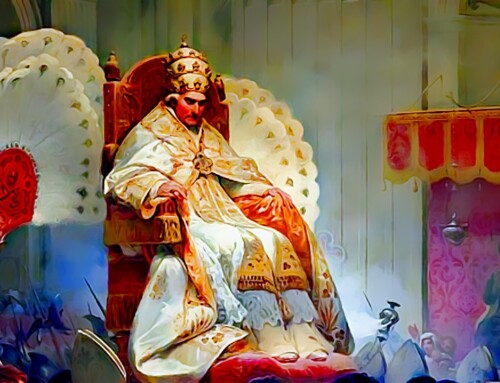
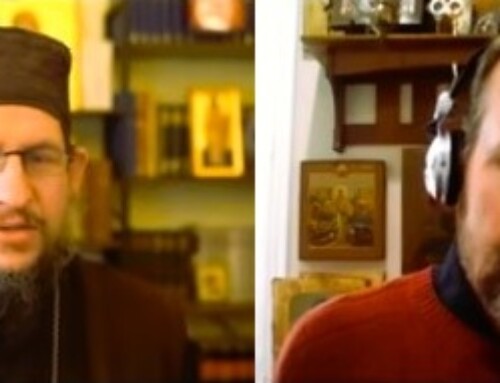
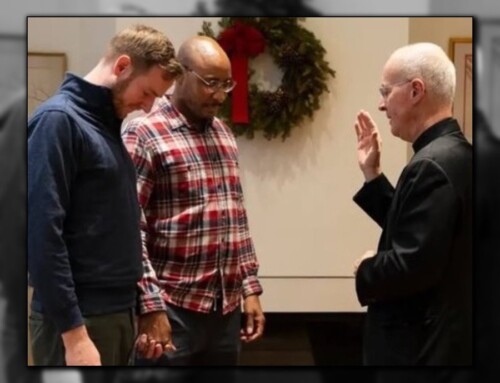
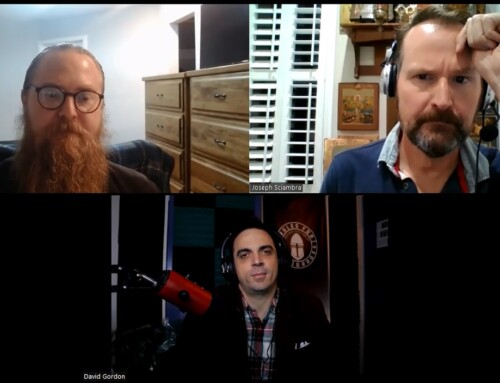
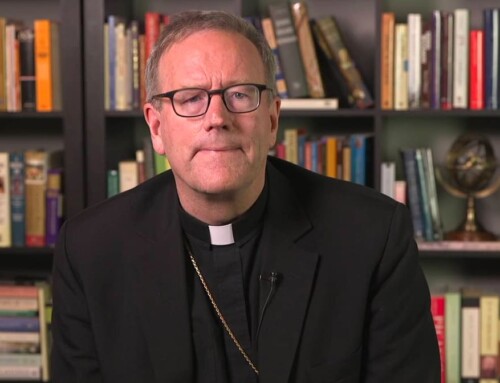
I am so pleased that there is someone who knows what he is talking about on this issue. Thank you, Joseph! So many are just accepting it like it is perfectly normal and that it is true love! True love is self sacrificing and wanting the good of the other. If they truly want the good of the other, they would say, “No” to the flesh and “Yes” to chastity.
Joseph, another 100% accurate and “to the point” article you have written. I love my catholic church, but not until the bishops focus on parents and their bad parenting skills as the main cause of dysfunctional behavior in their children is addressed, homosexuality will continue.
Wondering how you would tell parents of kids who come out to react? I confess I am shocked to see you uphold this theory of the roots of homosexuality, since so many gay men (men especially) mock it as silly. Why do they do that? Fear? My 18 YO nephew is just beginning this journey; I saw it coming. We all did. Classic overbearing mother, there-but-absent, disconnected and harsh father. He's a child of the gay propaganda and does not have your Christian roots to come home to. I pray he hits bottom sooner than later. But he's a cocky little shit so it's going to be tough for him. Pray for him? Logan.
I think homosexuality should be treated like a mental illness; unfortunately for children with loving parents – it is becoming increasingly difficult and illegal to find treatment for minors who are suffering from same-sex attraction or believe themselves to be “gay.” And, like everyone who is dealing with an illness, we must treat them with respect, kindness and patience. With the boys, the father of the child must take the lead position in the treatment of his son. A referral for a qualified therapist can be found at: https://www.narth.com
Read more here:
https://josephsciambra.com/2016/01/homosexuality-as-universal-untreated.html